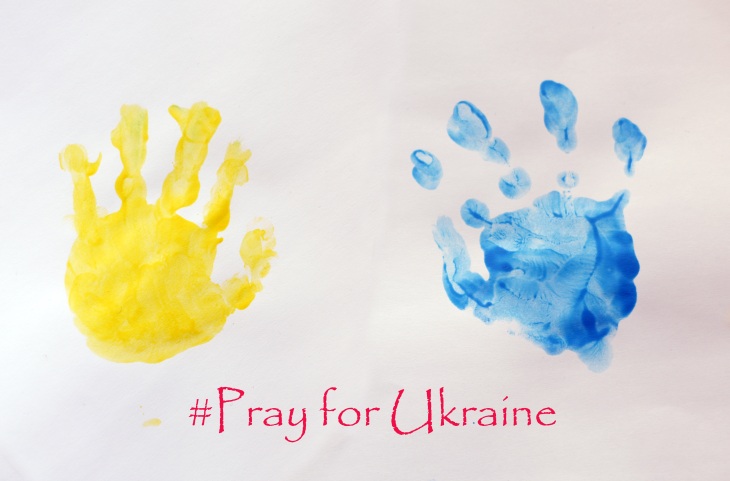 When my cell-phone rang late in the evening, I knew immediately it was her. She calls me rarely, only when she has just a tiny bit of time, usually at night. She has been serving as an ATO* nurse almost for a year now.
When my cell-phone rang late in the evening, I knew immediately it was her. She calls me rarely, only when she has just a tiny bit of time, usually at night. She has been serving as an ATO* nurse almost for a year now.
‘There are people who need shelter. There was a huge bombing here. Would you care to take them?’ – her voice was weak.
‘Sure. Give them my coordinates’, – I answered meekly, glancing at my husband with worry.
‘There are many of them’.
‘That’s OK. We will figure out what to do’.
Though it was rather late, I telephoned my friends – and everybody answered the call.
‘Sure’, – the answer was unvaried.
But those people never came.
During the last year hatred rates within Ukraine have escalated enormously. Kremlin propaganda falls into fertile soil. There always has been just a slight hint of misunderstanding between western and eastern Ukrainians. Different cultures, history, lifestyles, aspirations, geopolitical orientation, even architectural peculiarities – all of that contributed to the gap. But until recently those differences were just a source of jokes and funny stories. Oh, all right. The conflict did intensify every other couple of years, when the President elections occurred.
And now there are so many people in Donetsk and Lugansk regions who join the occupants in the deadly battles against Ukrainian army. Peaceful population is caught up in the whirl of torturous reality. On the other side, there are people in the Western Ukraine who post aggressive Facebook statuses declaring they are ready to give up on THAT territory because they don’t want to share the country with THOSE people anymore.
The truth is that too many people were killed. And there were simply too many incidents that have ignited the hatred even in those who tried to keep their composure. The incident with captive “kiborgs” beaten up on the streets of Donetsk is just one of them.
As consequence, there are hundreds (maybe thousands) of people who refuse outright to be evacuated from the conflict zone. They live in dark, damp basements, spend their pregnancy, give birth, nurse and bring up their children there. The kids have not seen the sun or the blue sky for months.
Many days have passed since the evening when my friend – the ATO nurse – called me to tell about those people. Since that evening she has been giving out my husband’s telephone number to every person who needed to leave the endangered territory. But nobody has ever called. Because they are deeply convinced we will hurt them. And this fear, as absurd as it is, causes them to stay in the heart of a military conflict, risking their lives and damaging their health.
There was a 15 year old girl, my friend told me, who wanted to leave, but had no one to go to. My friend gave her my husband’s phone number. The nurse showed the girl one of my kids’ books – I had sent it to my friend as a warming gift for Christmas. The girl’s eyes sparkled.
‘I know her!’ – She said. – ‘I have read her chocolate stories at school!’
‘See’, – my friend encouraged, – ‘here is the person you can trust. Please, let me drive you out of here.
‘No, I can’t. I won’t’. – The girl was adamant.
And that was it.
Several days ago I enrolled in online Public Speaking course – both because I need it for my job and because I am deeply troubled with the situation of fear and enmity among Ukrainian people. The most important issue that alarms me these days is the future of the underground kids.
In one of the first chapters of the course several personality types of audience were listed: the impulsive, the patient, the shy, the anxious, the optimist, the pessimist. The speaker, Alexandra Maratchi Legrain, made a very reasonable suggestion to adapt your message to your audience. And I thought to myself – am I ever doing this?
The underground population of my country is, for sure, the pessimistic audience. They are fed up with the hollow promises of peace and security. Their minds might be full of Kremlin’s propaganda, but they are still Ukrainians who love their piece of land. Yet after the long winter of crushed dreams they have little hope left.
Inviting these people for a long “sleepover”, we cannot offer them an all-inclusive voucher. We cannot promise them that everybody will treat them well. That economical crises will dissolve like smoke, and that they will find a good job at once. Life itself doesn’t make such promises to anybody.
But for now there is no bombing and no killing here. We have enough fresh air, sunshine, and water to share with them without hesitation. And here lives, at least, a handful of people who will accept them as they are, not asking about their background or political beliefs.
Their (and our) pain will not just go away, maybe it will not even cease. But, as one of my friends put it, we all will have to learn to live with it. And become happy again, even carrying the scars deep inside.
If we want to keep this country we love, we should not speak with hatred anymore. Hatred is a part of our enemy’s plot. We should not be quick to judge. And we must remember how important it is to adapt our message to our audience’s needs. And that means we should think about those needs. Think with care and understanding.
I once saw an episode in BBC TV-series about WWII where one of the volunteers at the front asks her family to send her a big box of hyacinth bulbs. And then she goes to the forest, makes a small garden, and plants them all. When spotted by a nurse, the girl says: ‘I just want to have something to look to during this winter’.
Someday this war will be over. And we will have to rebuild our country. We will have to look each other in the eye. Yes, there is a long winter ahead of us. But we should start sawing the seeds of love and care even now.
Nadiyka Gerbish is a national bestselling and award-winning novelist, inspirational short-stories and non-fiction writer, translator and motivational speaker from Ukraine. She is a devoted Christian. Together with her husband Nadiyka is raising a small daughter.
* ATO stands for Anti Terrorist Operation
